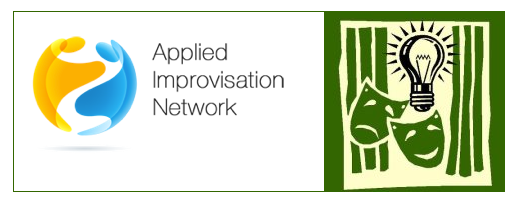Instructor
Improv and Acting Coach
I'm a big fan of improvisation skills on and off stage. Exercises for improvisational theatre ("improv") were originally devised to improve an actor's performances for scripted work like plays, musicals, and auditions. Benefits include the ability to perform more sincerely, intently, and effortlessly. Done well, improv performance is an art form in itself. The wonderful thing is that the same skills that help make a great performance on stage, also apply to a broad range of personal interaction in everyday life. Most focus on communication skills which apply directly to situations requiring facilitation, negotiation, or tact. And while actors can use the techniques to add drama to work on stage, for example, everyone can use them to remove drama from their work and personal life.
"Only someone who is well prepared has the opportunity to improvise"
Swedish Film Director Igmar Bergman
Applied Improvisation
There was a great workshop on April 27 presented by the S.E. Regional conference of the Applied Improvisation Network, basically on how to use improvisation for training, facilitation, strategic planning, brainstorming, and learning. I got some great ideas (4 pages of notes) on how to facilitate better, communicate better, generate more ideas, and re-energize groups. Brent Darnell and Robert Lowe led the day-long workshop for trainers, facilitators, project managers, and actors. Well worth the registration, now I'm considering getting certified by A.I.N.
Workshops
I've run or co-run improv workshops for a variety of corporate and institutional clients. Contact me to arrange for a personalized improv workshop. Frequent topics include:
• Listening for emotion -- because the words don't matter
• Flow -- being in the moment
• Character in 7-seconds -- Fun with Body Language
• Immediate Communication -- "Don't judge me!"
• The Elephant in the Room -- how to find and address the tension

